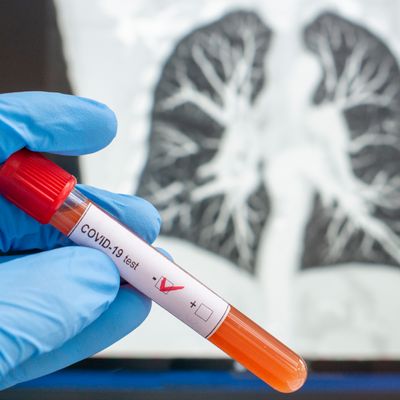
We’re committed to keeping our readers informed.
We’ve removed our paywall from essential coronavirus news stories. Become a subscriber to support our journalists. Subscribe now.
Six months into the global pandemic, one reassuring finding about the coronavirus is that if you are infected, it seems unlikely that you’ll get it again within a short period of time. In most cases, people who have tested positive for COVID-19 have later tested positive for antibodies, which studies have shown could contribute to immunity for anywhere between two months and a year. However, this week, the first reports of confirmed coronavirus reinfection emerged. Yesterday, researchers in Hong Kong announced the first confirmed case of COVID-19 reinfection in a 33-year-old man who first caught the virus in March, and then again in August. Virologists in Belgium and the Netherlands have since reported two additional cases of people who contracted the coronavirus a second time after recovering months earlier.
Medical experts have stressed that confirmed cases of coronavirus reinfection remain extremely rare: Across the globe, more than 23.6 million people have been infected with the virus, with only three documented instances so far of reinfection. However, the reports seem to confirm studies that suggest antibodies don’t grant long-lasting immunity, and they may carry implications for a coronavirus vaccine.
Here’s everything we do — and don’t — know about coronavirus reinfection.
So far, there have been three documented cases of COVID-19 reinfection.
While there have been anecdotal reports of coronavirus reinfection, no confirmed cases had been documented until this week. On Monday, the New York Times reported that researchers at the University of Hong Kong discovered “an apparently young and healthy” man who contracted the coronavirus twice. According to the yet-unpublished study, which was obtained by the Times, the man first tested positive on March 26, when he was presenting mild symptoms: a cough, a sore throat, fever, and headache. After recuperating, he had no detectible antibodies for the virus, which is rare, per our current understanding of the coronavirus. Then, on August 15, he tested positive yet again after traveling through the United Kingdom and Spain. Though the man was asymptomatic, researchers say that he picked up a different strain of coronavirus the second time around — proof that he had been reinfected.
On Tuesday, Reuters reported two additional confirmed cases of reinfection. In Belgium, a woman in her 50s contracted COVID-19 in March, and then again — with a different strain — in June. Per virologist Marc Van Ranst, the woman still had antibodies from her first infection, though very few; however, her symptoms the second time around were milder. The other case came out of the Netherlands, where an elderly patient who had fallen ill with coronavirus later contracted a second strain of coronavirus, virologist Marion Koopmans told Reuters.
What does this tell us about antibodies?
Typically, when pathogens enter your body, your immune system goes into high gear to destroy whatever disease-causing agent you’ve come in contact with. One way your body does this is through the production of antibodies, which helps your body build immunity to fight off the pathogen while you’re infected — and which, in theory, would also help prevent you from becoming infected with the same pathogen a second time. According to the Times, most people who become infected with coronavirus produce detectible antibodies.
Yet this isn’t always the case, as evidenced by the study out of Hong Kong, where the man did not produce antibodies after his first coronavirus infection. However, antibodies are only one of immune system’s tools to fight off infection, and experts say that the fact that the man was asymptomatic the second time is proof that his immune system did respond to the first infection.
Speaking to the report on Twitter, Akiko Iwasaki, an immunologist at Yale University, called the case a “textbook example of how immunity should work,” elaborating, “the second infection was completely asymptomatic — his immune response prevented the disease from getting worse.” Additionally, the study shows that the man formed antibodies after his second exposure.
However, if you contract the coronavirus twice, it’s not a guarantee that you’ll have a milder case the second time around. “There’s still a possibility that the second infection can be worse,” Dr. To told the Times.
What does reinfection mean for a vaccine?
While so far, confirmed cases of coronavirus reinfection are very rare, they seem to support the findings that natural immunity wears off — sometimes, in just a few months. That means that even once we have a safe, effective vaccine, we may have to get regular vaccinations against the coronavirus, as we do with the flu. “Perhaps a vaccine will need to be repeated every year, or within two or three years,” Van Ranst told Reuters. “It seems clear though that we won’t have something that works for, say, ten years.”




